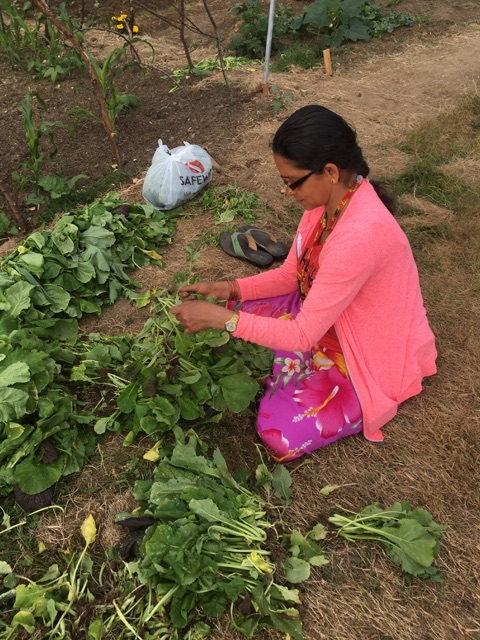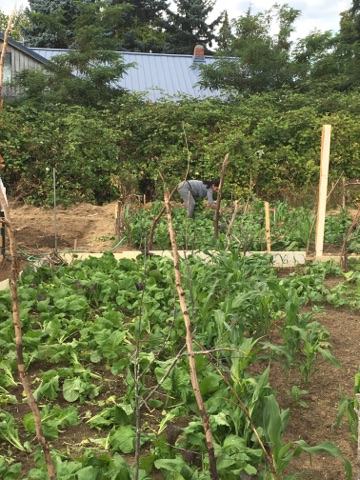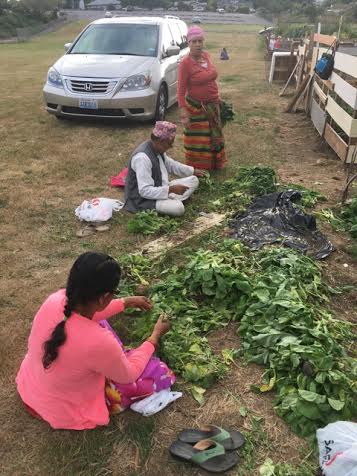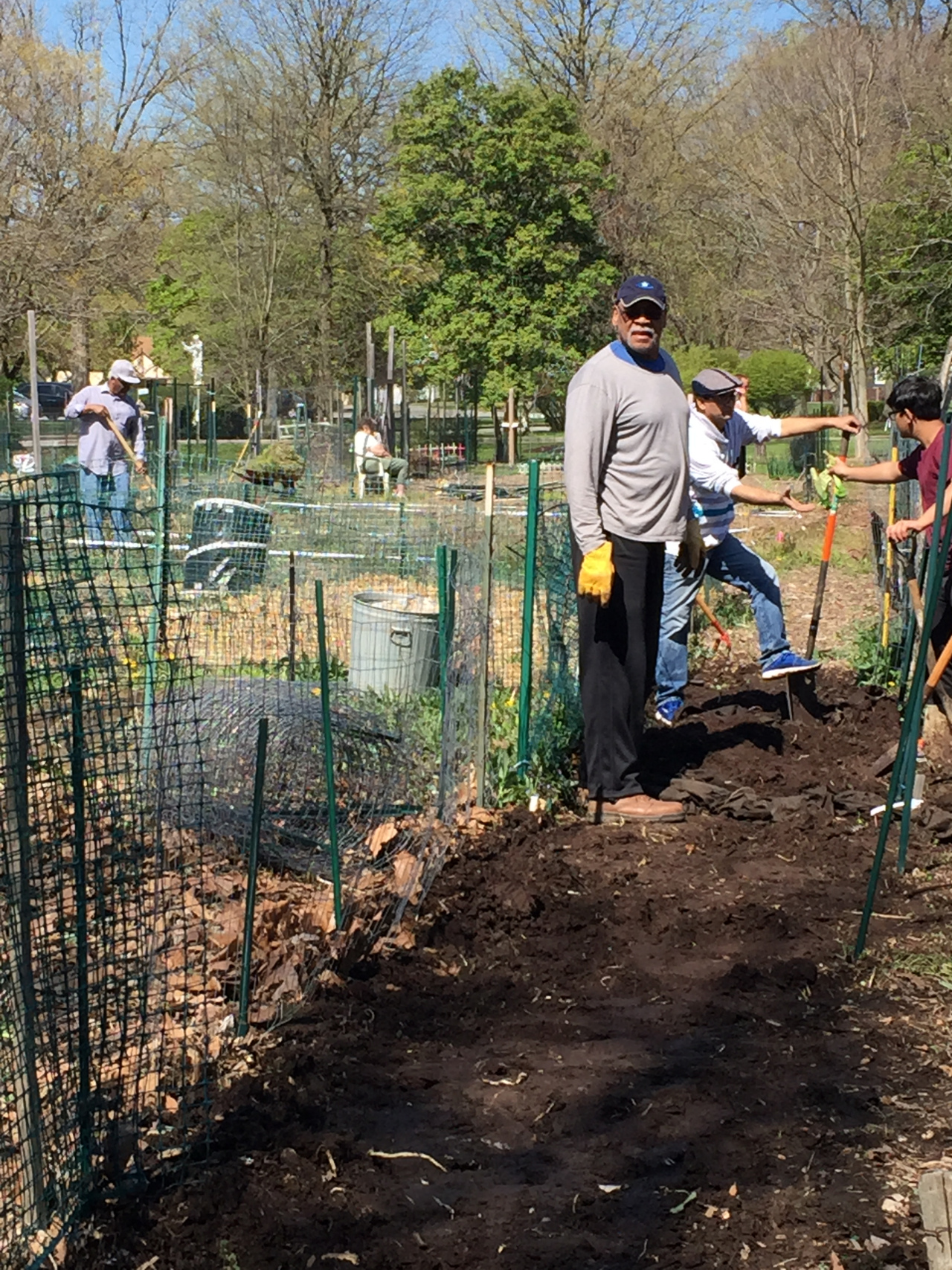Memories
During my recent road trip out west with my family I was able to share many childhood memories with my kids. As we were driving towards Illinois, I shared the multiple visits I made to my great-grandmother’s home along the same highway while being cramped in the back of a ’63 Barracuda with my brother and uncle. While in Mt. Rainier National Park, I asked my children if the mountain landscape reminded them of our visit to Nepal and the Himalayan mountains they had seen there. Over the course of 7,000 miles in the car we had ample opportunity to share stories about my childhood memories and theirs.
After arriving in Seattle my mother inquired if we had seen a newscast where they had highlighted a local community garden filled with refugees, called the Namaste Community Garden.
I told her that I hadn’t but while we were there we had to visit. I wanted to compare it to the community garden that we have locally, The Franciscan Ministries Community Garden at 110 Compton Rd.
We planned the visit during a day we would be sightseeing in the area. I looked up the address for the Namaste Community Garden. We drove through a suburb and found it nestled neatly at the end of a road on the property of St. Thomas Catholic Church. Upon arriving, the entrance opened up to a large green area, with the garden being on the left and a brick building and parking lot further up the road. The kids asked if I was sure this was place, since there wasn’t a sign. I quickly replied, “Of course, see the sticks?” The sticks used for trellising are a signature technique for Bhutanese gardeners.
We entered the gate and were quickly greeted by an elderly Bhutanese man, Jit, the garden caretaker and shed key holder. He couldn’t speak English but was able to share information about it with my husband who speaks Nepali. He was so excited, as were the other gardeners that we stopped to visit. Everyone shared their gardens and offered us produce.
Jit went and summoned Paul Hardin, a part of the St. Thomas ministry, to meet us. As Paul and I were discussing both community gardens and our work with refugees, I realized how similar the issues and benefits were. We both recognized that the garden is what reminds refugees of home. Many refugees from Bhutan, Africa, Burma, and Laos were avid gardeners. Working in the soil, growing the food that they are familiar with, participating with their neighbors and harvesting with their family are their memories from home that they can share. Gardening becomes their social event, a mental connection to memories they left behind and a way to share with the community one of the many gifts they brought with them. Paul shared that they had expanded to add 30 more crops to their garden this year. I laughed and said yes, we could have 5 acres tilled and it still wouldn’t be enough.
I spoke with other gardeners about their experience in the U.S. and Seattle in particular, and asked if they knew anyone in Cincinnati. The gardeners took the time to answer my questions related to composting, gardening and fencing techniques – and I answered theirs related to cost of living in Cincinnati. In a short hour a lasting friendship was formed. People started asking if we had a place to stay, if we needed dinner or anything else. I was amazed – strangers an hour ago and now friends, because of far away connections.
They were curious if I saw the similarities between Nepal and Washington. I explained that this was the first thing I thought of when I saw the mountain range near Mt. Rainier and the green that surrounded us. Some shared that seeing the mountain range comforted them and others said it made them sad because it was a reminder to the home they had left behind.
As I reflect on this trip and the memories that were made with my family, I pray that my children will be able to share this same journey with their families. For refugees and immigrants that have been forced to leave their homelands behind, my heartaches for them. I am glad that community gardens provide a way to fill a void in their lives that is needed.
In Cincinnati at the Franciscan Ministries Community Garden, refugees are given opportunity to participate in gardening education with Turner Farms and have become community crop plot garden leaders and members of the community garden committee. Their enthusiasm and knowledge of gardening has been instrumental in the success of the garden that coincidentally began the year that Bhutanese refugees began arriving in Cincinnati, 2008. The refugee population now makes up over 50% of the garden plots and the garden donates an average of 1000 pounds of produce to community food pantries.
Each ethnic gardener takes so much pride in the crops they produce and boast how they are able to not only feed their family but their extended families. On a rainy day you can drive by and notice an umbrella with a man or woman underneath tending to the soil. As they tell me, the dirt provides them comfort and reminds them of home. I often see their children sitting in the garden or helping them while their parents quickly speak their native tongue and I wonder if they’re sharing their childhood stories and memories with them.




